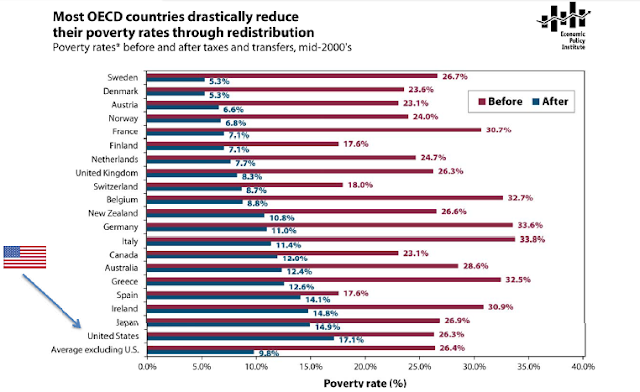From an interesting blog post by Noah Smith:
But since the time of Vilfredo Pareto it has been well-known that every country has a substantial amount of market poverty – that is, poverty before taxes and transfers. Here is a graph from the Economic Policy Institute of market poverty rates vs. post-transfer poverty rates:
In other words, no matter how you set up your system, you’re going to get a lot of people who will experience relative poverty without government transfers. Hence, the social safety net matters a lot.
Capitalism is not a bad thing. Capitalism, in some form, is an amazing engine of wealth creation. Capitalism of some sort, as far as we know, is absolutely necessary to maintaining high standards of living and eliminating absolute poverty.
But capitalism is not omnipotent. Drowning government in a bathtub and leaving individuals to sink or swim on their own in a free market economy will result in some people failing and being poor, no matter how well they behave. Thus, any capitalist system can be improved with a social safety net.
Yep.This is news to many ideologues in the UK and the US. But it’s central to Nicholas Colin’s argument in his book Hedge.

